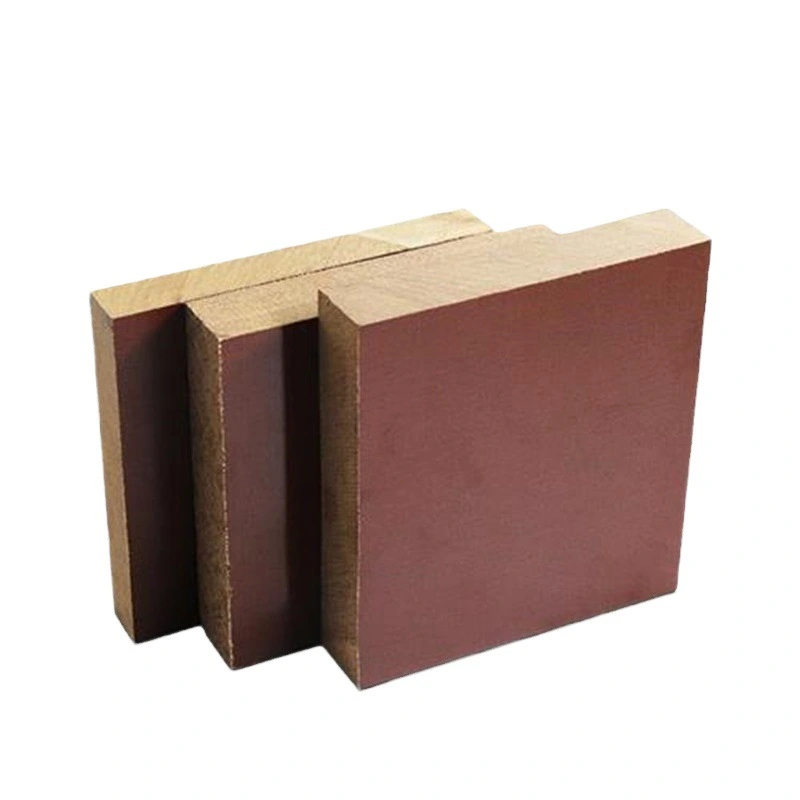What Industry Standards Govern Phenolic Cotton Sheets?
ASTM Standards for Phenolic Laminates
The American Society for Testing and Materials (ASTM) has developed several standards that apply to phenolic cotton sheets. ASTM D709 is a key standard that outlines specifications for industrial laminated thermosetting products. This standard covers various grades of phenolic laminates, including those reinforced with cotton fabric. It defines requirements for physical properties, electrical properties, and dimensional tolerances.
IEC Standards for Electrical Insulation
The International Electrotechnical Commission (IEC) has established standards specifically for electrical insulation materials. IEC 60893 is particularly relevant to phenolic cotton sheets used in electrical applications. This standard defines the requirements for rigid electrical insulation sheets based on thermosetting resins for electrical purposes. It includes specifications for phenolic cotton laminates, covering aspects such as electrical strength, tensile strength, and heat resistance.
ISO Standards for Quality Management
While not specific to phenolic cotton sheets, ISO 9001 standards for quality management systems are often applied in the manufacturing process. These standards ensure consistent quality in the production of phenolic cotton sheets, covering aspects from raw material selection to final product testing. Adherence to ISO 9001 demonstrates a manufacturer's commitment to quality and customer satisfaction.
Key Certifications Ensuring Quality and Safety
UL Certification for Electrical Safety
Underwriters Laboratories (UL) certification is highly regarded in the electrical industry. For phenolic cotton sheets used in electrical applications, UL 94 certification is particularly important. This certification assesses the flammability of plastic materials used in devices and appliances. Phenolic cotton sheets that meet UL 94 standards demonstrate superior fire resistance, enhancing their suitability for use in electrical equipment.
RoHS Compliance for Environmental Safety
The Restriction of Hazardous Substances (RoHS) directive is crucial for ensuring environmental safety. While phenolic resins themselves are generally RoHS compliant, it's essential to verify that the entire phenolic cotton sheet, including any additives or processing aids, meets RoHS requirements. This certification is particularly important for phenolic cotton sheets used in electronic and electrical equipment.
FDA Certification for Food-Contact Applications
For phenolic cotton sheets used in food processing or packaging equipment, Food and Drug Administration (FDA) certification may be necessary. While not all phenolic cotton sheets are suitable for food contact, those that meet FDA requirements can be used in applications where indirect food contact might occur. This certification ensures that the material does not leach harmful substances into food products.
Compliance Benefits for Industrial Applications
Enhanced Product Reliability and Performance
Compliance with industry standards and certifications significantly enhances the reliability and performance of phenolic cotton sheets in industrial applications. These standards ensure that the material meets specific requirements for mechanical strength, electrical insulation, and dimensional stability. For instance, phenolic cotton sheets that comply with ASTM D709 standards demonstrate consistent performance in high-stress environments, making them ideal for use in heavy machinery components or electrical switchgear.
Improved Safety in Critical Applications
In industries where safety is paramount, such as aerospace and automotive manufacturing, compliance with standards and certifications is crucial. Phenolic cotton sheets that meet UL 94 flammability standards, for example, provide an additional layer of safety in electrical applications. This compliance reduces the risk of fire hazards, protecting both equipment and personnel. Similarly, RoHS compliance ensures that the material does not contain hazardous substances, contributing to overall environmental and user safety.
Streamlined Regulatory Approval Process
Using phenolic cotton sheets that comply with relevant standards and certifications can significantly streamline the regulatory approval process for end products. In the aerospace industry, for instance, components made from certified materials are more likely to meet stringent safety requirements. This compliance can expedite product development cycles and reduce the time and cost associated with obtaining regulatory approvals, ultimately benefiting manufacturers and end-users alike.
Conclusion
Phenolic cotton sheet standards and certifications are indispensable in ensuring the quality, safety, and reliability of these versatile materials across various industrial applications. From ASTM and IEC standards governing physical and electrical properties to certifications like UL and RoHS ensuring safety and environmental compliance, these guidelines provide a framework for consistent performance and quality. Manufacturers and end-users alike benefit from improved product reliability, enhanced safety, and streamlined regulatory processes. As industries continue to evolve, adherence to these standards and certifications will remain crucial in maximizing the potential of phenolic cotton sheets in diverse applications.
FAQs
What is a phenolic cotton sheet?
A phenolic cotton sheet is a composite material made by impregnating cotton cloth with phenolic resin and curing it under heat and pressure. It offers excellent electrical insulation, high mechanical strength, and good dimensional stability.
What are the main applications of phenolic cotton sheets?
Phenolic cotton sheets are widely used in electrical equipment, mechanical components, aerospace, and automotive industries. They are commonly used for making gears, bearings, switchgear, transformers, and other industrial parts.
What are the key benefits of using phenolic cotton sheets?
Phenolic cotton sheets offer very good mechanical and thermal properties, high creep resistance, vibration absorption, and excellent electrical insulation. They are also resistant to wear, oil, and air, and can operate at temperatures up to 120°C.
Get High-Quality Phenolic Cotton Sheets from J&Q
At J&Q, we specialize in manufacturing top-grade phenolic cotton sheets that meet stringent industry standards and certifications. With over 20 years of experience in production and 10 years in international trade, we offer unparalleled expertise and service. Our in-house logistics company ensures seamless delivery worldwide. For premium phenolic cotton sheets that excel in performance and reliability, contact us at info@jhd-material.com.
References
ASTM International. (2020). "Standard Specification for Laminated Thermosetting Materials."
International Electrotechnical Commission. (2019). "Specifications for Industrial Rigid Laminated Sheets Based on Thermosetting Resins for Electrical Purposes."
Underwriters Laboratories. (2021). "Standard for Tests for Flammability of Plastic Materials for Parts in Devices and Appliances."
European Commission. (2022). "Restriction of Hazardous Substances (RoHS) Directive."
Food and Drug Administration. (2021). "Guidance for Industry: Use of Recycled Plastics in Food Packaging."
International Organization for Standardization. (2015). "Quality Management Systems - Requirements."






